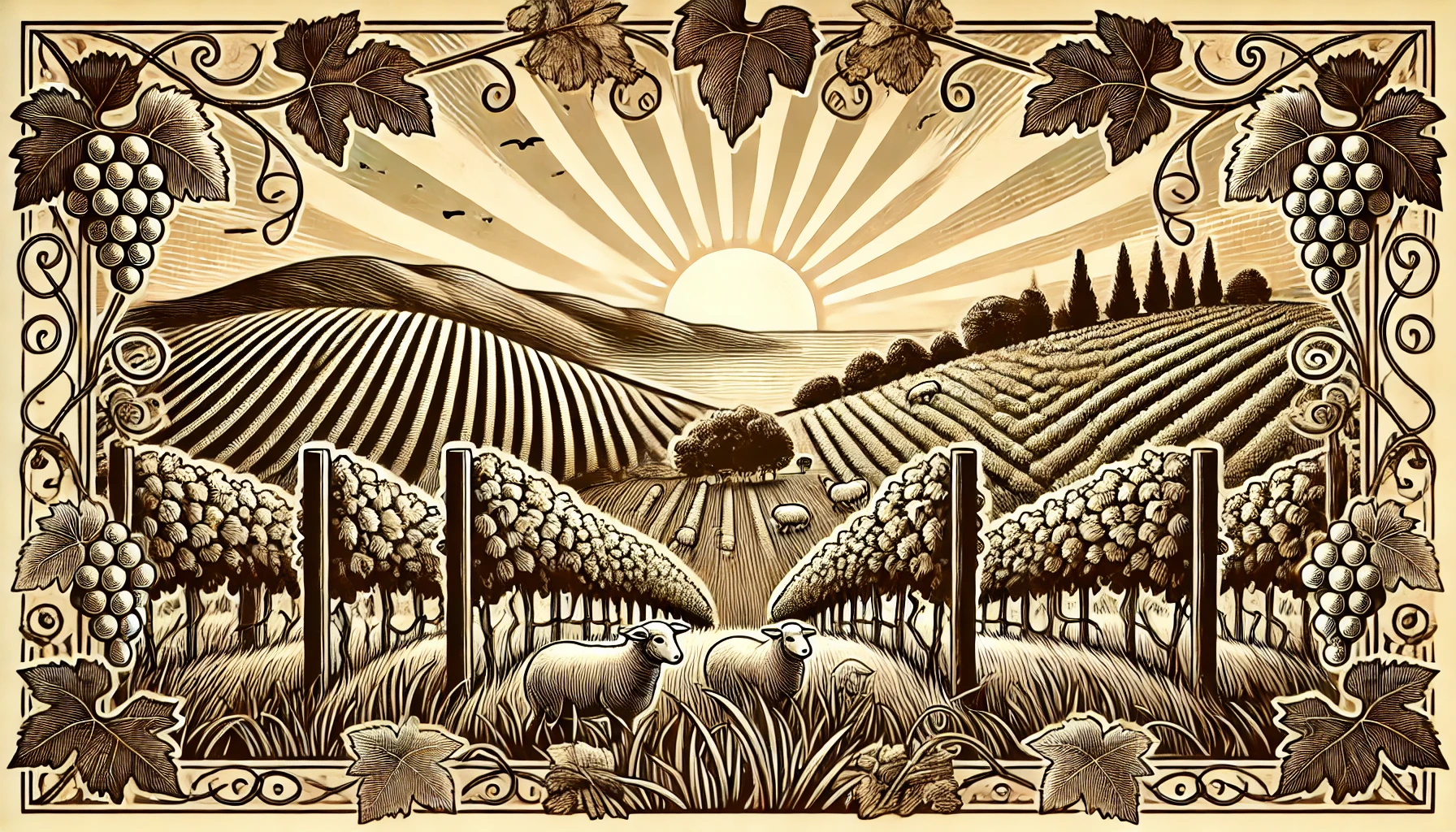
A biodynamic vineyard takes organic farming a step further. It follows principles established by Austrian philosopher Rudolf Steiner in the 1920s. Biodynamic farming focuses on creating a balanced ecosystem in the vineyard. It goes beyond avoiding chemicals and emphasizes harmony with natural cycles. Farmers use compost and manure to enrich the soil. They also plant cover crops to increase biodiversity.
Biodynamic vineyards follow a lunar calendar for tasks like pruning and harvesting. This approach sees the vineyard as a living organism, where everything is connected. Farmers often use preparations made from plants and minerals to boost plant health. For example, they might spray fermented herbal teas to strengthen the vines.
One key element of biodynamic farming is the use of animals. Animals like sheep may graze in the vineyard, helping to manage weeds naturally. Beekeeping is also common, encouraging pollination and fostering a healthy environment.
Biodynamic wine certification is available through organizations like Demeter. Wines made from biodynamic vineyards are said to express a truer sense of terroir. The aim is to work with nature, not against it, to produce high-quality wine with minimal impact on the environment.
Curious about more wine terms and insights? Visit our Wine Wiki section and explore the basic wine terms for expert definitions and tips!